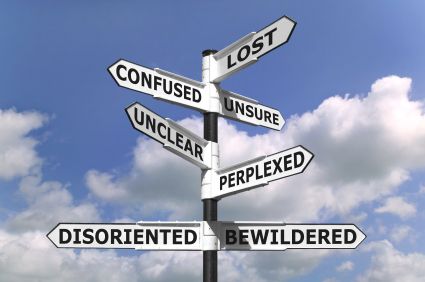Complexity is automatically difficult to discuss because something truly complex is murkily understood, therefore impossible to precisely define. Yogi Berra nailed complexity: “If I understand it, it’s simple; if I don’t, it’s complicated.” 
Something intricate, like a fancy mechanical watch, may not be very complex. If we apply our minds to the mechanism for a while, we’ll figure out how it works.
A really complex system may have a lot of influences on it that we are unaware of and feedback loops that are not straightforward. A complex system is always changing, not static. In addition, we wallow in complexity of our own making because we are often embedded in that system, and humans are packages of logic and emotion so complicated that as individuals we may consult a psychologist to help us figure out how we work. That is, our own understanding of a complex system chases a moving target that eludes precise definition.
Introducing some non-standard definitions may help to start knifing through this:
Heuristics: Search logics for problem solving. The tools of lean and quality are heuristics that assume that we have a common definition for waste. In turn, that assumes a common understanding of a company’s purpose, and a common understanding of customer needs; therefore, how to serve them well. Before we can effectively use heuristics, much of the complexity must melt away. In a vigorous learning organization, leadership must guide people in melting this mush and align them with a common mission and language.
Perspectives: Mental or symbolic maps of a system being considered; how it works, and what influences it. A mental map that is only symbolized mentally leads to intuitive problem resolutions (can’t explain them). For groups to resolve problems, a common problem language is necessary to explain problems and to record actions taken (as with A3 in the lean system).
Heuristic “tools” help create a common language, but they do not help to reconcile or take advantage of different perspectives. If members can “get along,” team problem solving takes advantage of diverse perspectives to be more effective when members with different perspectives on a problem generate more ideas and more imaginative ones.
But alas, reconciling adamantly different perspectives is a huge matter in resolving problems that are truly wicked for that reason. The perspectives of a subdivision developer and an ecological reviewer of his or her plan are apt to be in dramatic opposition. People defending interests may speak the same language without ever hearing the same language. If their perspectives harden into concrete, they may not even agree that a problem exists, or if they do, never agree on a definition for it. Problem resolution evaporates in a big cloud of distrust.
From a local to a global level, escaping the distrust of non-reconciling perspectives is the human issue of our times. Variants on systems thinking as well as various kinds of peacemaking mediators have been struggling with this for years, but successes make duller news than flame-spitting conflicts. Future updates will cover this also.
Tractable Problem Scope: A problem is tractable if we can deal with it. We can deal personally with small problems within our control (repair the back door). We can deal collectively with common problems within shared control (set up a schedule for volunteer school crossing guards). We can’t deal with big abstract problems like global hunger. The Compression Institute seeks problem areas of tractable scope, small enough to execute significant change, but big enough to have significant influence on all of us learning to do better using much less.
Vigorous Learning: Vigorous learning is a collective, but not a kumbayah process. When the issues involve differing interests and perspectives, we have to migrate the diversity of perspective from a set of win-lose obstacles into a divergence of perspectives as an asset seeing a problem from a view that may emerge as new to all participants. Said differently, can we grow from seeing opposing issues into seeing common problems?
Over time, a vigorous learning organization should develop both great heuristic learning and great methods for combining perspectives. And that topic too, we will take up again.
